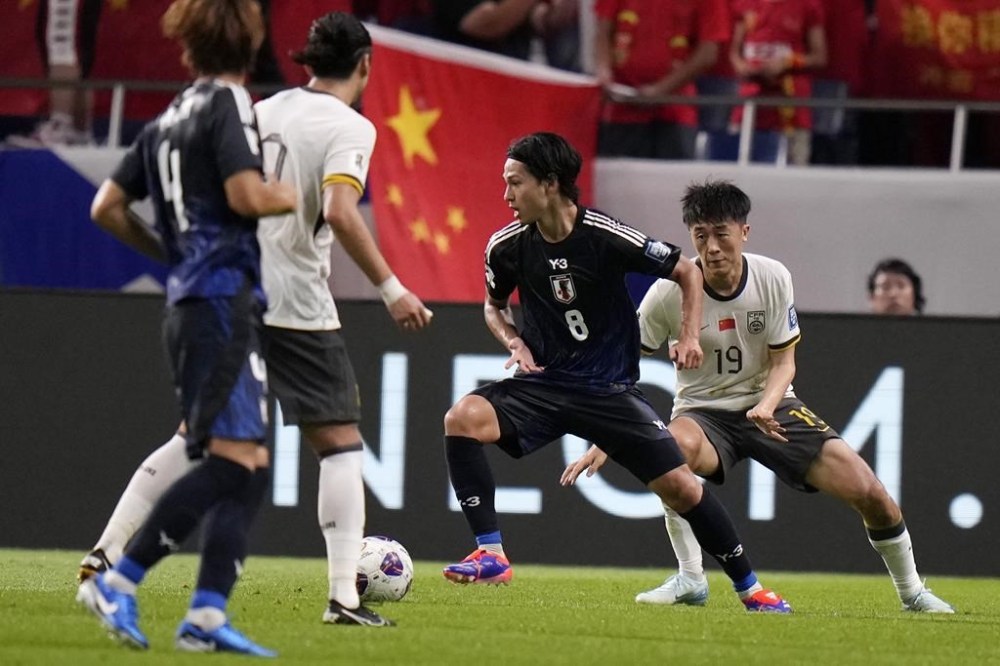Chinese soccer appears not to be improving despite president’s pledge to make it better
Advertisement
Read this article for free:
or
Already have an account? Log in here »
To continue reading, please subscribe:
Monthly Digital Subscription
$1 per week for 24 weeks*
- Enjoy unlimited reading on winnipegfreepress.com
- Read the E-Edition, our digital replica newspaper
- Access News Break, our award-winning app
- Play interactive puzzles
*Billed as $4.00 plus GST every four weeks. After 24 weeks, price increases to the regular rate of $19.00 plus GST every four weeks. Offer available to new and qualified returning subscribers only. Cancel any time.
Monthly Digital Subscription
$4.75/week*
- Enjoy unlimited reading on winnipegfreepress.com
- Read the E-Edition, our digital replica newspaper
- Access News Break, our award-winning app
- Play interactive puzzles
*Billed as $19 plus GST every four weeks. Cancel any time.
To continue reading, please subscribe:
Add Free Press access to your Brandon Sun subscription for only an additional
$1 for the first 4 weeks*
*Your next subscription payment will increase by $1.00 and you will be charged $16.99 plus GST for four weeks. After four weeks, your payment will increase to $23.99 plus GST every four weeks.
Read unlimited articles for free today:
or
Already have an account? Log in here »
Hey there, time traveller!
This article was published 06/09/2024 (407 days ago), so information in it may no longer be current.
TOKYO (AP) — Chinese President Xi Jinping is reported to be a big soccer fan, and he promised in a 2015 document to resuscitate the national men’s team, damaged by abysmal results on the global stage and widespread corruption in local leagues.
He cannot be happy.
Japan defeated China 7-0 on Thursday in a World Cup qualifier in Saitama, Japan, a brutal loss that came against one of China’s biggest sports and geopolitcal rivals in Asia. It was China’s most lopsided loss against Japan, and a historic loss in World Cup qualifying.

China’s national team coach Branko Ivankovic of Croatia called it a “most difficult night,” as quoted in English by the official Xinhua news agency, which termed the loss “humiliating.”
Wataru Endo and Kaoru Mitoma scored in the first half on a night of Asian World Cup qualifiers. Takumi Minamino scored twice in the second half with others from Daizen Maeda, Junya Ito and Takefusa Kubo.
Reaction in China was muted on state media. The China Sports Daily had a very short story titled: “China lost to Japan in World Cup qualifier” with few details.
But there was more discussion on Chinese social media.
Zhang Feng, a journalist and commentator with a popular blog, was direct.
“Football cannot be boosted by singing odes, or telling stories,” he wrote. “It needs skill, and physical and tactical training. It cannot be accomplished through politics.”
Tang Yinghong. a prolific writer with a large following, suggested football is not a good fit for China, which won 40 gold medals in the recent Paris Olympics to tie the United States. Some were in sports like diving and others that do not have a large global following.
“In my opinion, let’s just let football develop on its own,” Tang wrote. “Leaders should not place high hopes on the sport, and the government needn’t give it a lot of care.”
China has nine more qualifying matches remaining, and still has a shot at reaching the expanded, 48-team World Cup in 2026, hosted by the United States, Mexico and Canada. But even with the larger and weakened field, China still might not make it.
China has qualified only once for the World Cup. It lost all three matches in 2002 and failed to score a goal.
China is No. 87 in the most recent FIFA rankings for men’s teams, just below the Caribbean island of Curaçao (population 150,000), and just above the African nation of Equatorial Guinea (1.7 million). China’s population is about 1.4 billion.
___
Didi Tang in Washington contributed to this report.
___
AP soccer: https://apnews.com/hub/soccer


